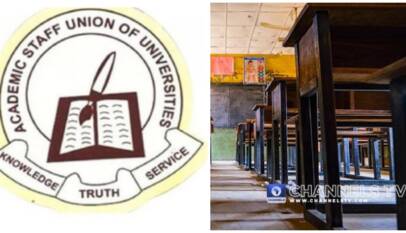A Federal High Court sitting in Abuja has issued an order restraining Professor Pat Utomi and his associates from proceeding with plans to establish a shadow government or cabinet in Nigeria, declaring the move unconstitutional.
Justice James Omotosho delivered the judgment on Monday in a suit filed by the Department of State Services (DSS), Nigeria’s domestic intelligence agency. The court held that the idea of a shadow government is foreign to Nigeria’s presidential system and violates the country’s constitutional framework.
A shadow government, often used in parliamentary systems like those in the United Kingdom or Canada, is formed by opposition parties to monitor and offer alternative policies to those of the sitting government. It is not an official part of governance but serves as a platform for political accountability and preparedness to take power in the event of an electoral win.
However, Justice Omotosho ruled that such a concept has no place within Nigeria’s presidential democracy, which does not provide for parallel government structures outside of the constitutionally recognized system.
The DSS had approached the court seeking legal backing to stop Utomi and his group from what it described as “potentially subversive activities” that could pose a threat to national security. The court agreed, with Justice Omotosho affirming that the agency was within its legal rights to act preemptively against actions it deems capable of disrupting public order.
The judge emphasized that while freedom of association and expression are fundamental rights under Nigeria’s Constitution, they do not extend to the formation of unauthorized governing bodies. “No individual or group can hide under the guise of civic freedoms to engage in acts that may destabilize the country,” he said.
Professor Pat Utomi, a renowned economist and former presidential aspirant, has long been an outspoken critic of successive Nigerian administrations. In recent years, he has advocated for political reform, better governance, and greater citizen engagement.
Earlier this year, Utomi hinted at plans to establish a shadow cabinet made up of technocrats and civic leaders, aimed at proposing alternative policy ideas and holding the government accountable. The move was praised by some as a democratic innovation but criticized by others as a challenge to constitutional order.
Following the court’s ruling, it remains unclear whether Utomi and his group will appeal the decision or abandon the initiative altogether. As of press time, there has been no official response from Professor Utomi or his associates.
The federal government has also not issued a statement regarding the ruling. This development adds another layer to Nigeria’s ongoing debate over the limits of political expression and the role of civil society in governance.
































